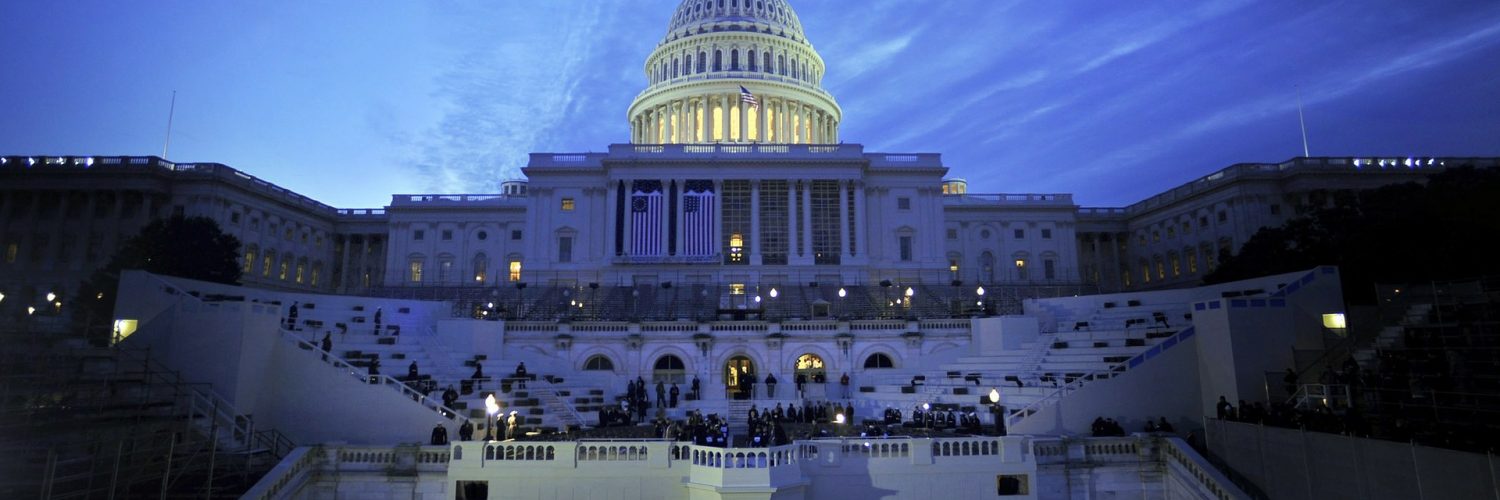America’s top trade negotiator told Congress that he is doing everything possible to get a new free trade deal with Canada and Mexico ratified by Congress in the coming weeks.
But when pressed about ending punishing trade tariffs on American importers that buy goods from China, the ambassador was less accommodating.
U.S. Trade Ambassador Robert Lighthizer testified Tuesday and Wednesday in the Senate Finance and House Ways and Means committees to update Congress and the American people on the president’s trade policies and the proposed new free trade deal that would replace NAFTA, the United States-Mexico-Canada Agreement (USMCA).
Lighthizer urged both houses to quickly ratify the USMCA, which was responsible for $1.4 trillion in trade between the three countries last year.
Arizona Gov. Doug Ducey and Gov. Claudia Pavlovich of Sonora, Mexico, sent a letter to Congress Wednesday urging them to ratify the USMCA.
“USMCA provides a once in a generation opportunity to take Arizona’s trade relationship with Mexico to the next level,” Ducey said in a tweet.
#USMCA provides a once in a generation opportunity to take Arizona’s trade relationship with Mexico to the next level. Sonora Governor @ClaudiaPavlovic and I are calling upon our federal legislatures to get this done. The time is now. https://t.co/o66ZgqusdE pic.twitter.com/5LYCB3WtI2
— Doug Ducey (@dougducey) June 19, 2019
USMCA is ‘gold standard’ of trade
At the hearings Tuesday and Wednesday, Lighthizer touted the new USMCA as the “gold standard” of trade agreements that emphasizes enforcement against violators, and promises to grow new American industry and jobs.
To get the USMCA through Congress, Lighthizer has been meeting with House Speaker Nancy Pelosi and other Democrats to resolve outstanding issues. At the hearings, he said he’s willing to budge on issues of contention.
“I’ve said it from the beginning, my objective was to get a very large number of Democrats and Republicans to support this,” Lighthizer said.
Free trade deal gets toehold in Congress
The hearings this week signal the measure now has a toehold in both houses. The two committees must approve the bill before it can move ahead. The Democratic-controlled House must pass it first.
For Arizona, the deal is critical. Last year, trade with Mexico and Canada totaled $20.2 billion, representing a 7.7 percent increase with Mexico and a 2.4 percent increase with Canada, according to U.S. Census Bureau statistics. Nationally, NAFTA was responsible for more than $1.3 trillion in trade between the three countries last year, according to the Office of the U.S. Trade Representative.
Bones of contention
As negotiations over USMCA come to a head, these are the issues to be resolved:
Enforcement in Mexico As part of the USMCA, Mexico agreed to stronger environmental protection measures and labor reform laws. Democrats want proof they will be enforced.
Prescription prices Some Democrats want assurance that new provisions pertaining to pharmaceuticals will not hamper the ability to maintain and lower prescription drug prices.
Seasonal tax on tomatoes An attempt by Florida to add seasonal duties and regional dumping taxes on Mexican tomatoes is opposed by the Border Trade Alliance, members of Congress from Arizona, California and Texas, as well as agriculture interest groups. Mexico stated in a letter to the chairs of the two committees that inclusion of such a measure could force it to pull out of the USMCA.
Tariff threats President Donald Trump could impose new tariffs on Mexico if it cannot stem the flow of migrant caravans. That, too, could cause Mexico to pull out, Mexican officials have stated.
White House unlikely to back down on China
Meanwhile, industries are bracing for another round of tariffs on China, and retaliation.
Lighthizer took a hardline stance against China during the hearings, stating that it is worth the economic pain to endure tariffs if it forces China to end “decades of unfair trade” practices including theft of intellectual property, technology transfer, and subsidizing state run industries, upending free market rules.
Lighthizer indicated Trump will impose 25 percent trade duties on all $300 billion worth of goods from China if he and President Xi Jinping cannot make a deal at the G20 Summit in Osaka, Japan, June 28-29.
Almost every congressional member who spoke at the hearings voiced concern over the continued tariffs.
Many spoke of the harm to their states’ economies so far and said it’s time to find another way to punish China for unfair trading practices, such as working through the World Trade Organization and with allies to impose and enforce penalties.
“I don’t agree that tariffs should be the tool we use in every instance to achieve every trade policy goal,” the chair of the Finance Committee, Sen. Chuck Grassley (Iowa), said in the Tuesday hearing. “I fear that continuing to use tariffs in this way will undermine our credibility with our current and potential trading partners and actually undo the benefits of our historic tax reform.”
More than 600 companies crying, “Uncle”
Since March 2018, U.S. Customs and Border Protection has assessed $22 billion on products and materials imported from China, Grassley said.
“So, to be clear, American importers and consumers are paying for these tariffs; $22 billion out of the pockets of hardworking Americans is not in our national interests,” Grassley said. “I urge the administration to use everything they can to use tariffs as a last resort option.”
An additional 25 percent trade taxes on China products would wipe out more than 2 million U.S. jobs, stated the 660 CEOs of companies including Costco, Walmart, Target, Kohls, Petsmart, Hallmark and Foot Locker in a letter to President Trump June 13.
The average cost to an American family of four? More than $2,000.
















Add comment